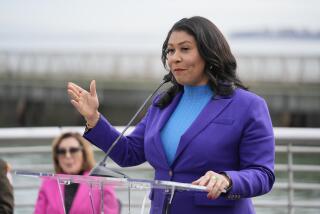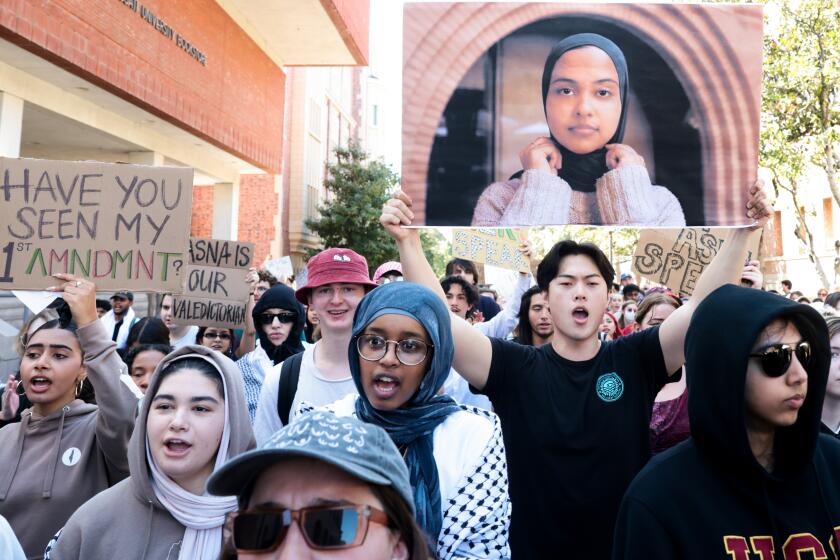Initiative to keep some L.A. pot shops open qualifies for ballot
Prospects that the emotional debate over medical marijuana dispensaries will bleed into the Los Angeles’ mayoral race increased sharply this week when an initiative to keep some pot shops open qualified for the ballot.
The measure was certified as eligible to appear on the ballot late Wednesday after officials determined that its supporters had collected the required 41,138 valid signatures. The City Council has until the end of the month to enact the proposed ordinance, call a special election or place it before voters in the May 21 election.
A second initiative that would allow an even larger number of pot shops is being vetted by city officials and could appear on the same ballot.
The proposals are putting lawmakers in an awkward — if familiar — position. Last fall, the council reluctantly agreed to reverse its ban on storefront sales of medical pot after activists gathered enough signatures to place a repeal of the law on the March primary ballot, when voters will choose candidates for mayor, city attorney, city controller and eight council seats.
Since overturning the pot shop ban, lawmakers have been slow to craft a new policy regulating marijuana sales. City Councilman Paul Koretz said Thursday that the new ballot drives have “forced our hand.”
“We need to express an opinion one way or the other,” he said. The councilman said he hopes the council can reach an agreement with the group that has qualified its measure for the ballot, noting that the proposal would permit only about 100 dispensaries to remain open.
The dueling measures highlight a new, more organized political approach by the medical marijuana industry. They also have exposed a growing rift among pot shop owners that could pit opposing factions against each other in a costly battle at the ballot box.
The clash is largely over market share and has its roots in a short-lived 2007 city moratorium on new dispensaries. Shops that registered with the city before the moratorium took effect want to preserve their businesses and ban dispensaries that opened later — using the measure that qualified Wednesday to do so. The measure is backed by the United Food and Commercial Workers union, which last year began organizing workers at dozens of the city’s older dispensaries.
The rival measure, which is still under review by election officials, is supported mostly by dispensaries that opened after 2007. It would establish permit procedures and allow any dispensary that meets certain requirements — including keeping a specified distance from schools and parks and limiting hours. The measure would also raise taxes on medical marijuana sales by 20% to help pay for city regulation.
David Welch, an attorney for the group that wants to permit more shops, said dispensary operators who are trying to limit permits “want to create a small monopoly for themselves.”
But Rick Icaza, the president of the union backing the more restrictive ballot measure, said the public isn’t ready for the larger number of dispensaries that could be approved under the competing measure.
“Our initiative is something that would be more desirable for the community,” he said.
Icaza said he hopes the City Council will adopt his group’s proposal and avoid an election fight. But he said he will leverage his union’s 33,000 members and the support of the powerful Los Angeles County Federation of Labor to win support for the initiative if necessary. “We can muster up the troops,” he said.
Kris Hermes, a spokesman for Americans for Safe Access, a national medical marijuana advocacy group, said the organization would support whichever initiative shows the greatest likelihood of success. Until now, his group has supported the union-backed coalition of older dispensaries.
“We want to maintain the best possible scenario for patients in Los Angeles,” he said. “That could be through the City Council or through one of these measures. Frankly, we see either one as a movement in the right direction.”
kate.linthicum@latimes.com
More to Read
Start your day right
Sign up for Essential California for news, features and recommendations from the L.A. Times and beyond in your inbox six days a week.
You may occasionally receive promotional content from the Los Angeles Times.







